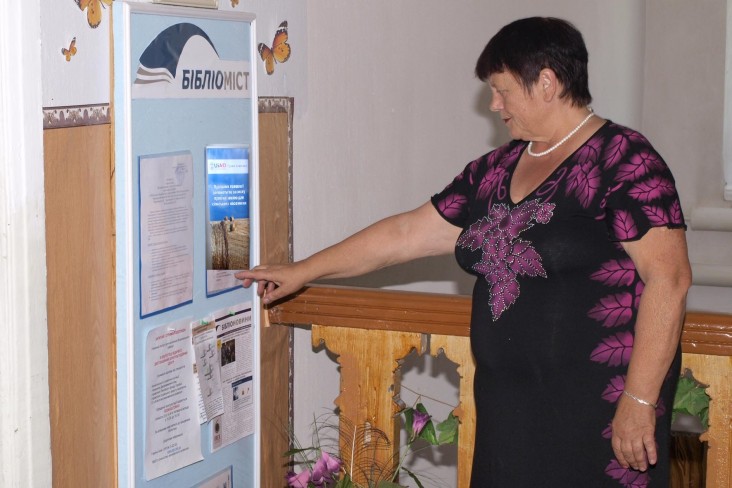
June 2015—In early 2014, Vira Ovcharenko, a small farmer in Ukraine’s Mykolaiv oblast, found herself at an impasse over how to re-register her right to a plot of land to which she held title. Due to a bureaucratic error at the State Land Agency, Ovcharenko’s land plot shared a cadaster, or registry, number with another piece of land, preventing her from re-registering her own land, leaving her concerned and uncertain that she would succeed in keeping her property.
During the mass land privatization of the 1990s, Ovcharenko received a 4-hectare land plot as acknowledgement of her hard work for the local collective farm. Since then, land legislation in Ukraine has become increasingly complex and confusing. When land cadaster numbers were introduced, Ovchrenko, like millions of other rural landowners, had to secure a number—a complicated procedure that included executing expensive land surveys.
In early 2014, a new state registration system was established, and land ownership had to be registered under the new rules. It was during this re-registration that officials discovered Ovchrenko’s land cadaster number was improperly duplicated.
Agency officials informed Ovchrenko that she had to execute all the land surveys again to rectify the situation, an expense she could not afford. In subsequent months, Ovcharenko appealed to various bodies without success. She realized she needed the services of a lawyer but did not have the funds to hire one.
After making no progress for a year, Ovchrenko discovered the free legal services offered by USAID to people in situations like hers.
Under its AgroInvest program, USAID established a law center in 2013 in the town of Voznesensk that helps rural landowners like Ovcharenko protect their land rights. In addition to creating 16 law centers in eight regions of Ukraine, the program includes a national-level resource center, which develops information and training materials for law center lawyers and analyzes typical cases to develop “roadmaps,” which consist of step-by-step instructions for landowners to resolve disputes and protect their property rights.
These activities are supported by a widescale information campaign that includes radio and television programs and information distribution through local libraries and mayors’ offices.
Lawyers from the law center in Voznesensk provided Ovcharenko with all the legal support she required, including representing her in court and helping her to prepare the requisite documentation. They helped her to win her dispute, register her land and receive a refund from the State Land Agency of costs incurred due to their mistakes in registering her property and subsequent mishandling of her case.
“I can confidently say that these lawyers work for a positive outcome—for the client. I am very grateful to the lawyers for their support in securing my land rights,” said Ovcharenko.
Since the launch of the five-year AgroInvest program in 2011, more than 13,000 rural landowners in Ukraine have received consultations, lawyers have resolved more than 700 land-related conflicts, and over 9,000 people have participated in roundtables, presentations, training events and community meetings to receive information about their land rights and how to protect them.
LINKS
Follow @USAIDUkraine, on Facebook







Comment
Make a general inquiry or suggest an improvement.